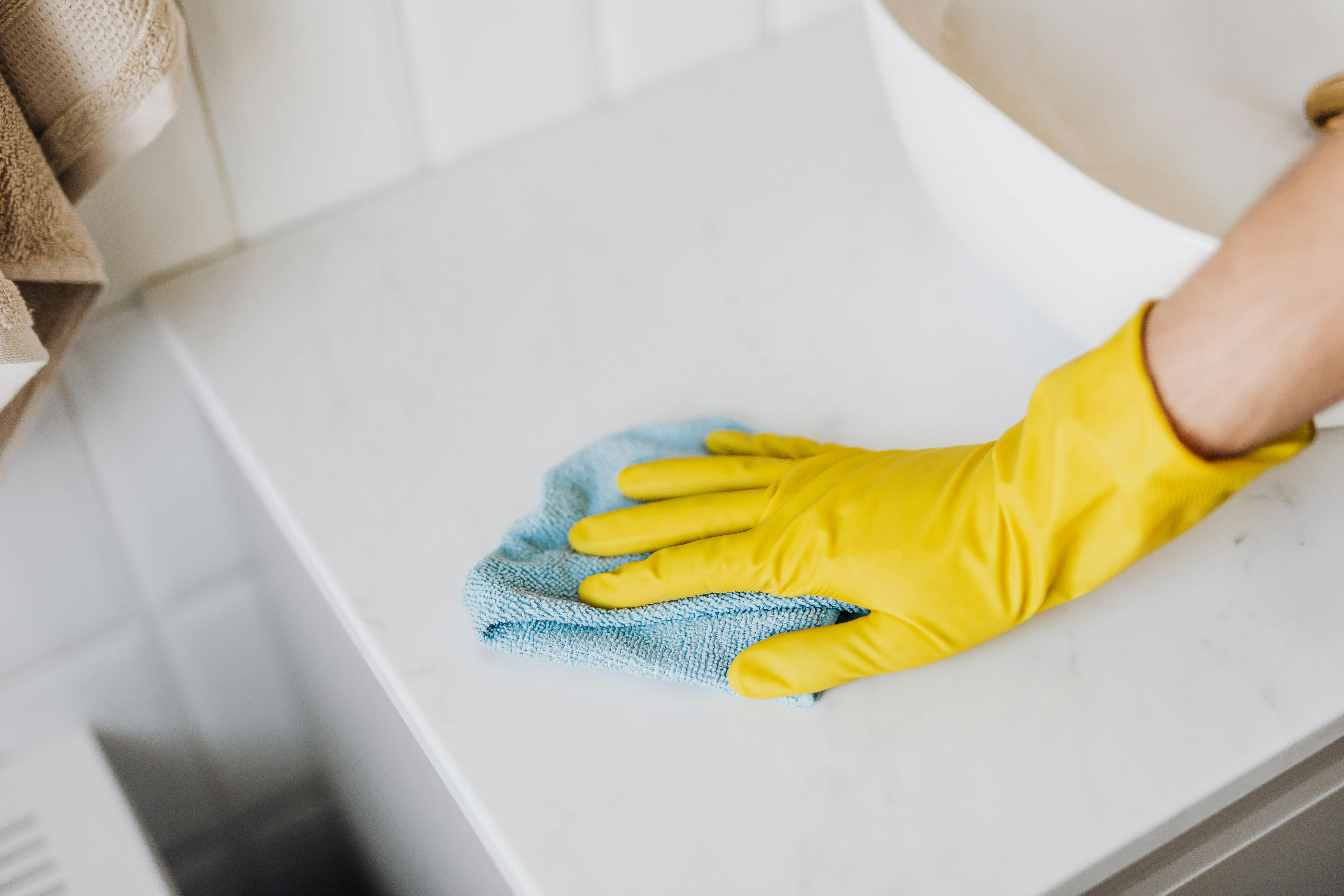Using distilled white vinegar to wash clothes is a great way to save money and still get your clothes clean. It can be used as a natural alternative to harsh detergents, which can be hard on fabrics and cause skin irritation. Distilled white vinegar is also more environmentally friendly than traditional laundry detergent. With a few simple steps, you can use distilled white vinegar to clean your clothes and make them look as good as new.Distilled White Vinegar is a liquid consisting mainly of acetic acid and water. It is clear and has a sharp, acidic taste and a strong, pungent smell. It is produced by the fermentation of ethanol and is commonly used as a food ingredient, as well as for cleaning and other household uses.
Benefits of Washing Clothes with Distilled White Vinegar
Distilled white vinegar is an effective and natural way to clean clothes. It can be used as a fabric softener and to remove odors, stains, and residues from laundry. It is also a great way to reduce the amount of harsh chemical detergents you use in your laundry routine. Here are some of the benefits of washing clothes with distilled white vinegar:
First, it helps to soften fabrics naturally. This means that your clothes will feel softer and more comfortable when you wear them. The gentle acidity of the vinegar helps to break down tough fibers in fabrics, which makes them softer and more comfortable to wear. Additionally, it will help keep colors vibrant and extend the life of your clothing.
Second, distilled white vinegar helps to remove odors from clothing. It is especially effective at removing sweat odors from athletic clothing or work clothes that may have been exposed to strong smells. It also helps to neutralize any unpleasant smells that may be lingering in fabrics.
Third, it can be used as a natural fabric brightener.
Should You Wash Clothes with Distilled White Vinegar?
Distilled white vinegar is a great natural cleaning agent, and it is often used to clean clothes. It can be used as a pre-soak treatment to get rid of tough stains, as a fabric softener, or even as an all-purpose cleaner. The vinegar helps remove odors and residues left behind by detergents, leaving your clothes smelling fresh and clean. Washing clothes with distilled white vinegar can also help to protect colors from fading and keep fabrics looking new for longer.
When washing clothes with distilled white vinegar, it is important to dilute the vinegar with water first. This will help to prevent any potential damage that could be caused by undiluted vinegar. For general laundry purposes, mix one cup of distilled white vinegar with a gallon of warm water before adding your clothes. For pre-soak treatments or stubborn stains, you can use a stronger solution of one part vinegar to four parts water. Just make sure that the type of fabric you are washing can handle the solution you are using – always check the care label for instructions.
Another benefit of
How to Wash Clothes with Distilled White Vinegar
Washing clothes with distilled white vinegar is a great way to remove odors and freshen up your laundry. Distilled white vinegar has natural antibacterial properties, which can help keep your clothes clean and free of any bacteria or mold. It also helps to soften fabrics, making them more comfortable to wear. Plus, it’s an affordable and eco-friendly alternative to commercial fabric softeners and detergents.
To get started washing your clothes with distilled white vinegar, begin by adding 1/2 cup of the vinegar to the rinse cycle during the final rinse of your laundry cycle. This will help to remove any detergent residue from the fabrics as well as soften them. You can also add a few drops of essential oil to the rinse cycle for an extra boost of freshness.
It’s important to remember that you should never use distilled white vinegar on delicate fabrics such as silk or wool as it may cause damage. Additionally, it’s best not to use too much vinegar as this could leave an unpleasant smell on your clothes. To avoid this, make
Substitutions for Distilled White Vinegar when Washing Clothes
Using distilled white vinegar in the laundry is a great way to help keep your clothes looking good, smelling fresh, and free of bacteria. However, there are some instances where you may not want to use distilled white vinegar in your laundry. In those cases, there are several alternatives that can help you get the same results without the odor of the vinegar. Some of these include lemon juice, baking soda, and borax.
Lemon juice is a natural way to freshen up your clothes and is especially effective on whites. It can be used alone or added to a regular laundry cycle instead of distilled white vinegar. The acidity in the lemon juice helps breakdown dirt and grime while also helping to brighten your whites. Just be sure to avoid using it on delicate fabrics as it can damage them over time.
Baking soda is another great alternative when washing clothes without using distilled white vinegar. The alkaline nature of baking soda helps break down dirt and odors while also helping to soften fabrics. It’s gentle enough for most fabrics including

Pros of Washing Clothes with Distilled White Vinegar
Using distilled white vinegar to wash clothes has many benefits. First, it is an inexpensive and natural option. It is much cheaper than buying detergent, yet it still effectively cleans clothes. In addition, it has antibacterial properties that make it great for sanitizing clothing. It also helps to remove odors from laundry, which is great for stinky socks and workout clothes. It also prevents colors from fading and can be used as a fabric softener as well. Furthermore, distilled white vinegar is safe for all fabrics, so you don’t have to worry about damaging delicate items like silk or wool.
Cons of Washing Clothes with Distilled White Vinegar
Although distilled white vinegar can be beneficial when washing clothes, there are a few drawbacks as well. First, the smell of the vinegar can linger on clothing after washing. This may be unpleasant for some people, although the smell should dissipate after a few hours or when the item is dried in the sun or in the dryer. Additionally, distilled white vinegar can be harsh on fabrics
Washing Clothes with Distilled White Vinegar
Adding a cup of distilled white vinegar to your laundry can help to give your clothes a deeper, fresher clean. Here are some tips and tricks for washing clothes with distilled white vinegar:
• Before you start, make sure you check the care labels on your clothing. Some fabrics may not be suitable for washing with vinegar.
• If you are using regular detergent as well as white vinegar in the same load, make sure to add the detergent first and then the vinegar. This will ensure that any residue from the detergent is removed by the vinegar.
• When it comes to adding the distilled white vinegar, add one cup for a full load of laundry or half a cup for a smaller load. You can also use less if you are only washing a few items.
• The best time to add the distilled white vinegar is when your machine is filling up with water just before it starts its wash cycle. This will ensure that all of the clothing is exposed to the cleaning power of the vinegar
Using Too Much Vinegar
One of the most common mistakes when it comes to using distilled white vinegar to clean clothes is using too much. Vinegar is a great natural cleaner, but using too much can be damaging to your clothes and can leave them smelling sour. To avoid this mistake, it is important to use only the recommended amount of vinegar for each load of laundry. This amount varies depending on the size of the load and type of fabric, so make sure to follow the instructions on the bottle for best results.
Using Vinegar Without Diluting It
Another common mistake when cleaning clothes with distilled white vinegar is not diluting it before use. Vinegar is an acidic substance and should always be diluted before adding it to your laundry. For best results, dilute 1/2 cup of vinegar with 1 gallon of water and make sure that the mixture is thoroughly mixed before adding it to your laundry.
Adding Vinegar Directly To Laundry Detergent
It’s also important to avoid adding undiluted vinegar directly into your

Conclusion
Using distilled white vinegar to clean your clothes can be an effective and safe way to remove odors, soften clothes, and reduce static cling. It is also a great way to keep your washing machine clean. However, it is important to remember that not all fabrics can be safely washed with distilled white vinegar. Therefore, you should always check the care labels of your clothing before attempting to do so. Additionally, you can make sure that the amount of vinegar used is appropriate for the fabric by running a spot test prior to washing your garments.
Overall, distilled white vinegar can be a handy tool to have in your laundry room as it helps you keep your clothes smelling clean and fresh while also reducing static cling and softening fabrics. With proper care and attention, you can use this natural cleaning agent as a safe alternative to chemical-based detergents.

